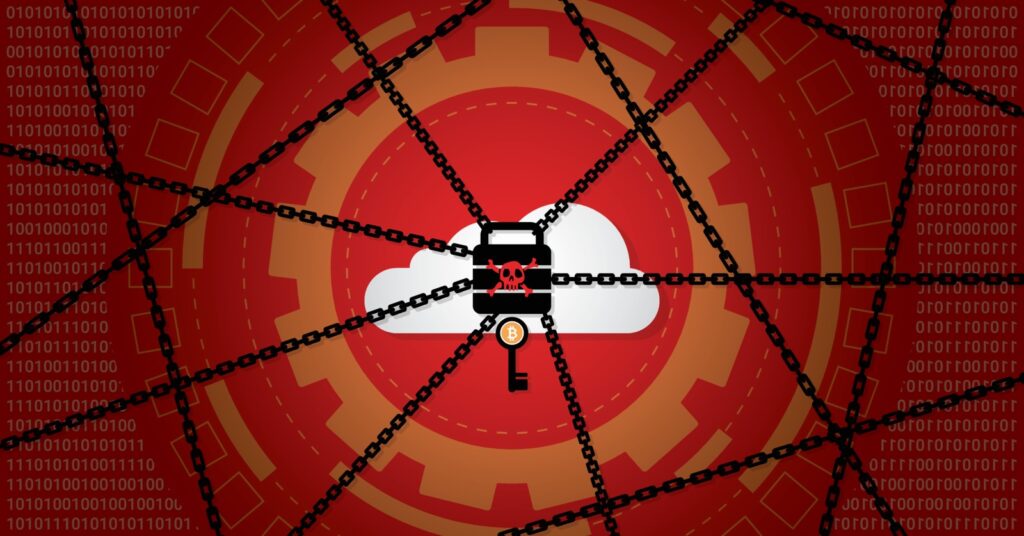With the growth of technology, it is no news that viruses and malware can attack anyone. But, of course, everyone is aware that not all viruses are equally harmful. In today's article, we will look at a particular virus called the ransomware virus.
What is ransomware?
Ransomware is a virus, malicious software that can take over a computer system and limit access to the files it infects. The word “ransomware” comes from the attacker's demand for money in exchange for restoring control of compromised systems. Ransomware is a virus that can encrypt all your data, which can be disastrous, making it one of the most feared types of computer viruses.
Let's hop back into time to better understand why ransomware is so dangerous. First, of course, there have been viruses in the past, but as computers have evolved, so have their viruses.
A good example is that in the old days running a virus scanner would detect and delete the infection, and then it was just a matter of figuring out where things were. Today, with a ransomware virus, you can't be so sure of anything.
What is the goal of a ransomware attack?
As you may already know, it's all about blackmail. In exchange for the data that they have encrypted, hackers will demand money.
Ransom texts or popup images appear on the devices with a promise to restore access to the data, but unfortunately, a successful outcome is not guaranteed. It is important to stress that once the ransomware virus has infected your machine, it is often too late! The best way to protect you from the effects of the infection is prevention.
Therefore, it is crucial to have a rock-solid backup. The best and unfortunately the only solution is data recovery.
What does ransomware do?
As for its primary function, ransomware utilizes encryption to block access to data. It's possible to break the encryption of these algorithms, but it would take up a massive amount of our time. It would be an overwhelming task: unless we developed a specific program for solving each particular algorithm only, and until then, that would take us ages.
Why is it so hard to fight against ransomware?
There must not be a better, faster way to fight these viruses.
The answer is quite simple. First, you have to catch it, like a virus in the medical sense. Then, the goal is to get the vaccine against it.
What are the differences between ransomware and other viruses?
Ransomware is devastating. For one thing, a ransomware virus is very clever and moves fast. As a result, it can take advantage of us and various devices, operating systems, and software.
Other types of malware are not as cunning. For example, a trojan virus is much simpler; you need to click on it to activate it, and your antivirus software has a better chance of detecting it.
What are the two main types of ransomware?
Not targeted, delivered via email
Email ransomware can be distributed in several ways, and unfortunately, spam campaigns remain the number one delivery vector. These attacks are not well planned or directed at specific people. Instead, these types of attacks target as many users as possible. In this case, the virus is hidden in emails and is usually in the attachment. It downloads onto the recipient's computer and starts running.
Targeted attacks against large organizations
Ransomware attacks against large companies are a different area entirely. They are usually targeted because they have a lot of money or cyber insurance coverage, thus a better chance for a payout. By carefully orchestrating their attack around taking over devices, they can silently and efficiently gain control of the company's system. And once they have all the components ready, they quickly unleash the ransomware, which then encrypts all the data.
What is the best solution to protect against ransomware?
There are multiple strategies to survive a ransomware attack. First, of course, the best thing to do is prevent the attack from happening and stay on top of your cybersecurity.
- Backup: The most critical thing is to properly backup all data. Of course, it does matter where your data is stored; it is best to use a secure, always accessible, dedicated location or backup service.
- Comprehensive Virus Protection: We believe that it's critical to have good virus protection. There are countless excellent security software on the market, which you can use for private and company defense.
- Please stay up to date: Any hardware and software must always be up-to-date, with auto-notification turned on for the latest updates or patches. This is important to avoid gaps where a virus could get in, and it should be done as soon as possible.
- Cyber Security Training: Although keeping your computers well maintained and backed up is essential, it does not necessarily solve all the issues. To get the whole picture, well-maintained machines and proper user training are both necessary.
- Email Protection: Businesses need to understand that email is often a delivery mechanism for phishing and ransomware attacks. We must always be careful what we open and click in each message. For example, if you receive an email from a service provider with a link that will take you to a different website, don't follow the link; open a new page and type in the correct web address instead. If it looks even slightly suspicious, don't click.
There you have it; these are the most critical ways to protect the integrity of your business against ransomware, make sure that your machines are maintained and updated, and have a proper data backup.
If you have any cybersecurity-related questions, let us know in the comment section below or message us. Thanks for reading.

